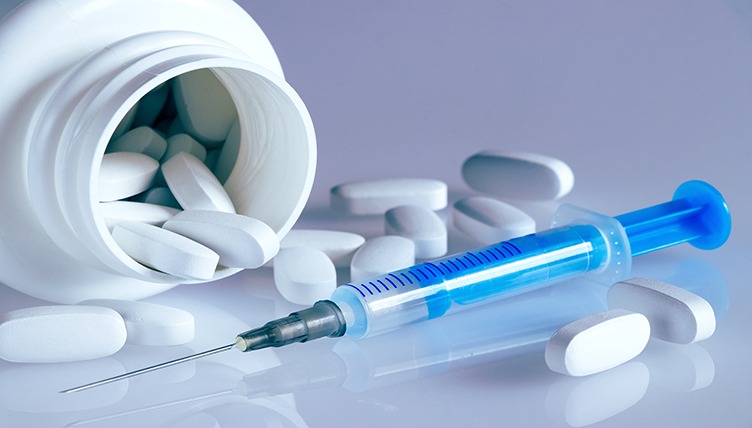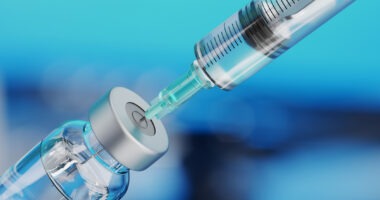Supplying Potential COVID-19 Treatments and Vaccines
The race is on to develop treatments and vaccines against COVID-19, and so is the need to assure supply of these potential drugs and vaccines. Pharma companies are leveraging their internal manufacturing networks but also partnering with CDMOs/CMOs. What manufacturing strategies/alliances are in play?
Inside the numbers: tracking potential treatments and vaccines
The pharmaceutical industry, academic institutions, and governments are in active pursuit to develop potential treatments against the novel coronavirus (COVID-19) and potential vaccines. At least 182 drugs or regimens are in planned or active trials as therapeutics for patients diagnosed with COVID-19 or as vaccines, covering a diverse range of mechanisms largely focused on viral inhibition and immune modulation, according to a recent report by the IQVIA Institute of Human Data Science, Shifts in Healthcare Demand, Delivery and Care During the COVID-19 Era: Tracking the Impact in the United States, which was released earlier this month (May 2020). An additional 97 therapeutic drugs are not yet planned or in active trials, but are moving through early discovery and preclinical testing, providing longer-term possibilities. An additional 50 vaccines are in discovery or preclinical stages and intended to prevent infection or provide post-exposure prophylaxis for individuals at high risk. As of April 20, three vaccines were in Phase I investigation. At least 16 medicines with approval for non-COVID-19 indications are in clinical trials to assess their benefits in COVID-19 disease, including some that are already being used by providers through emergency authorization or compassionate-use programs, notably hydroxychloroquine and remdesivir.
Supply lines for potential COVID-19 drugs and vaccines
In parallel to the research and clinical development of potential COVID-19 drugs and vaccines is the need to supply a given drug or vaccine not only for clinical testing but on a large commercial scale should a drug or vaccine be proven to be effective. In announcing updates on research efforts, pharmaceutical companies are also reporting supply and manufacturing strategies in preparation for meeting clinical and potential commercial needs. These supply strategies involve companies’ both internal and external manufacturing networks, which externally involve forming partnerships with CDMOs/CMOs to meet volume requirements. Below is a roundup of some of these efforts.
The supply lines: vaccines
Several companies and organizations with promising vaccine candidates have announced supply strategies. Highlighted below are some companies, including Johnson & Johnson, Moderna, Pfizer, and Oxford University in partnership with AstraZeneca.
Johnson & Johnson. J&J is advancing its lead vaccine candidate against COVID-19 and expects to initiate human clinical studies at the latest by September 2020 and anticipates the first batches of a COVID-19 vaccine could be available for emergency use authorization in early 2021. The partnerships are designed to accelerate manufacturing of J&J’s COVID-19 vaccine candidate and to further J&J’s goal to supply more than one billion doses of the vaccine globally.
To meet that goal, the company has put forth a plan that involves both ramping up production internally and collaborating with external partners. J&J has already begun preparations for clinical vaccine production at its facility in Leiden, the Netherlands, with the aim of initiating Phase I human clinical studies of its vaccine candidate in September 2020. J&J says it will begin production at risk (meaning it will scale up production while the vaccine candidate is still in development), and says it is committed to bringing an affordable vaccine to the public on a not-for-profit basis for emergency pandemic use. Simultaneously, J&J is also aiming to rapidly scale up vaccine-manufacturing capabilities globally, including increasing capacity in countries outside the US.
Late last month (April 2020), J&J announced two partnerships for vaccine production, one with Emergent BioSolutions, a Gaithersburg, Maryland-based specialty biopharmaceutical company and contract manufacturer, and Catalent.
Under the agreement with Emergent BioSolutions, valued at approximately $135 million, Emergent will provide drug-substance manufacturing services supported by investments from J&J beginning in 2020 and will reserve certain large-scale manufacturing capacity for commercial manufacturing of J&J’s adenovirus-based COVID-19 vaccine beginning in 2021. To support J&J’s goal of supplying one billion doses of a COVID-19 vaccine, a long-term commercial manufacturing agreement with Emergent BioSolutions is under negotiation for large-scale drug substance manufacturing anticipated to begin in 2021.
Catalent is partnering with J&J to accelerate availability of manufacturing capacity and prepare for large-scale commercial manufacturing at its facility in Bloomington, Indiana of J&J’s lead vaccine candidate for COVID-19. The collaboration commits joint investment to accelerate rapid scale-up of segregated manufacturing capacity over the coming months (as reported on April 29, 2020). Catalent says it plans to hire approximately 300 additional employees at the site for this program starting in July 2020 to meet operational readiness and 24 × 7 manufacturing schedules by January 2021. Catalent’s 875,000 square-foot facility in Bloomington, Indiana has capabilities for sterile formulation and drug-substance development and manufacturing and drug-product fill–finish capacity across liquid and lyophilized vials, prefilled syringes, and cartridges as well as primary and secondary packaging.
Moderna. Moderna, a clinical-stage biopharmaceutical company developing messenger RNA (mRNA) therapeutics and vaccines, is advancing its lead mRNA vaccine (mRNA-1273) against the novel coronavirus (SARS-CoV-2). Late last month (April 2020), the company announced an agreement for a commitment of up to $483 million from the Biomedical Advanced Research and Development Authority (BARDA) within the US Department of Health and Human Services, to accelerate development of the company’s mRNA vaccine candidate, mRNA-1273, against the novel coronavirus. A Phase I study of mRNA-1273, which began on March 16, 2020, is being conducted by the US National Institutes of Health.
If supported by data from the Phase I study, Moderna says it intends to begin a Phase II study of mRNA-1273 under its own investigational new drug application in the second quarter of 2020. Subject to data from these studies and discussions with regulators, the company says a Phase III study could begin as soon as the fall of 2020. BARDA funding will support these late-stage clinical development programs as well as the scale-up of mRNA-1273 manufacture in 2020 to enable potential pandemic response.
To support the scale-up, Moderna says it plans to hire up to 150 new team members in the US this year (2020). This includes additional manufacturing staff to expand manufacturing capacity from two shifts per day, five days per week to three shifts per day, seven days per week, engineers to manage process scale-up, and clinical and regulatory staff to support clinical development.
To further support manufacturing, earlier this month (May 2020), Moderna signed a 10-year strategic collaboration agreement with Lonza to enable larger scale manufacture of Moderna’s mRNA vaccine (mRNA-1273) against COVID-19 and additional Moderna products in the future. The companies plan to establish manufacturing suites at Lonza’s facilities in the US and Switzerland for the manufacture of mRNA-1273 at both sites. Technology transfer is expected to begin in June 2020, and the companies intend to manufacture the first batches of mRNA-1273 at Lonza US in July 2020. Over time, the parties intend to establish additional production suites across Lonza’s global facilities to ultimately allow for the manufacture of material equivalent to up to 1 billion doses of mRNA-1273 per year for use worldwide assuming the currently expected dose of 50 µg. The manufacturing facilities at Lonza complement Moderna’s ongoing US manufacturing efforts, which continue to ramp up to prepare for the further clinical development and commercialization of mRNA-1273.
Pfizer. Pfizer and BioNTech, a Mainz, Germany-based immunotherapy company, reported this week (May 5, 2020) that the first participants have been dosed in the US in a Phase I/II clinical trial for the companies’ BNT162 vaccine program to prevent COVID-19. The trial is part of a global development program, and the dosing of the first cohort in Germany was completed in late April (April 2020). Last month (April 2020), Pfizer and BioNTech formed a collaboration, worth up to $748 million ($185 million upfront), to develop vaccine candidates against COVID-19. The BNT162 vaccine program includes four vaccine candidates, each representing a different combination of mRNA format and target antigen. The design of the trial allows for the evaluation of the various mRNA candidates simultaneously in order to identify the safest and potentially most efficacious candidate.
During the clinical development stage, BioNTech will provide clinical supply of the vaccine from its GMP-certified mRNA manufacturing facilities in Europe. In anticipation of a successful clinical development program, Pfizer and BioNTech are working to scale up production for global supply. Pfizer plans to activate its manufacturing network and invest at risk in an effort to produce an approved COVID-19 vaccine to allow production of millions of vaccine doses in 2020, increasing to hundreds of millions in 2021. Pfizer-owned sites in three US states (Massachusetts, Michigan and Missouri) and Puurs, Belgium have been identified as manufacturing centers for COVID-19 vaccine production, with more sites to be selected. Through its existing mRNA production sites in Mainz and Idar-Oberstein, Germany, BioNTech plans to ramp up its production capacity to provide further capacities for a global supply of the potential vaccine. BioNTech and Pfizer will work jointly to commercialize the vaccine worldwide upon regulatory approval (excluding China, where BioNTech has a collaboration with Fosun Pharma, a Shanghai-based pharmaceutical company, for BNT162 for both clinical development and commercialization).
AstraZeneca and Oxford University. The University of Oxford announced late last month (April 2020) an agreement with AstraZeneca for the further development, large-scale manufacture and potential distribution of the university’s COVID-19 vaccine candidate currently in clinical development by the university. The vaccine is an adenovirus vaccine vector (ChAdOx1) and was developed at Oxford’s Jenner Institute, which began clinical trials last month (April 2020) with the University’s Oxford Vaccine Group. The vaccine is being manufactured to clinical-grade standard at the Clinical Biomanufacturing Facility at Oxford University.
Under the agreement, AstraZeneca will work with global partners on the international distribution of the vaccine. Both AstraZeneca and the University of Oxford have agreed to operate on a not-for-profit basis for the duration of the coronavirus pandemic, with only the costs of production and distribution being covered. Oxford University and its spin-out company, Vaccitech, which jointly have the rights to the platform technology used to develop the vaccine candidate, will receive no royalties from the vaccine during the pandemic. Any royalties the university subsequently receives from the vaccine will be reinvested back into medical research, including for a new Pandemic Preparedness and Vaccine Research Center, which is being developed in collaboration with AstraZeneca.
Separately, MilliporeSigma reported last month (April 2020) that it had partnered with Oxford University’s Jenner Institute to develop more scalable vaccine-manufacturing processes. The partners intend to improve the manufacturing process for adenovirus vaccines—vaccines based on adenovirus, a type of DNA virus, as a carrier—using MilliporeSigma products, systems and technologies on a real-world feed stream. By applying MilliporeSigma technology, the collaborators aim to develop a cost-effective and transferable manufacturing process that can be used to accelerate vaccine development and manufacturing. The collaboration is expected to result in a closed process that can be practiced in a cleanroom to minimize contamination, in line with the biological safety requirements for viral vectors.
Ramping up production for potential COVID-19 drugs
Just as companies prepare for rapid scale-up of production for COVID-19 vaccine candidates, so do companies for potential drugs used to treat COVID-19. A case in point is Gilead Sciences’ remdesivir, an investigational antiviral drug against COVID-19.
Gilead Sciences. Earlier this month (May 2020), the US Food and Drug Administration (FDA) granted emergency use authorization (EUA) for Gilead Sciences’ investigational antiviral drug, remdesivir, to treat COVID-19. The EUA will facilitate broader use of remdesivir to treat hospitalized patients with severe COVID-19 disease. Gilead says that allocation of the currently limited available supply of remdesivir will be made based on guiding principles that aim to maximize access for appropriate patients in urgent need of treatment with direction from and in collaboration with the US government. The EUA allows for the distribution and emergency use of remdesivir only for the treatment of COVID-19; remdesivir remains an investigational drug and has not been approved by the FDA.
The US government will coordinate the donation and distribution of remdesivir to hospitals in cities most heavily impacted by COVID-19. Given the severity of illness of patients appropriate for remdesivir treatment and the limited availability of drug supply, hospitals with intensive care units and other hospitals that the government deems most in need will receive priority in the distribution of remdesivir, noted Gilead in a May 1, 2020 statement. Gilead says it is working with the US government on the logistics of remdesivir distribution and says it will provide more information when the company begins shipping the drug under the EUA.
Gilead says it has donated the entirety of its existing supply of finished and unfinished product. Assuming a 10-day treatment course, Gilead’s donation of 1.5 million individual doses of remdesivir equates to more than 140,000 treatment courses that will be provided at no cost to treat patients following potential emergency authorizations and regulatory approvals, including the EUA. Gilead says it will continue to support clinical trials as well as expanded-access and compassionate-use programs for remdesivir. In addition, Gilead says it will evaluate global allocation of supply on an ongoing basis using multiple, independent data sources to track the incidence and severity of the outbreak.
Gilead is using a multipronged approach to scale up production and rapidly build supply of remdesivir. The company has invested capital, at risk, to meet the supply needs for clinical trials and emergency treatment programs, and to prepare for even greater demand following regulatory authorizations, should these occur.
Through process refinements, Gilead says it has shortened the manufacturing lead time from raw materials through to finished product. The typical timeline for manufacturing a drug such as remdesivir at scale is nine to 12 months, and Gilead says it has reduced that period to six to eight months. The production of remdesivir is a long, linear chemical synthesis process that includes several specialized chemistry steps and novel substances with limited global availability. Because remdesivir is administered intravenously, production also requires sterile drug-product manufacturing capabilities.
Gilead has also supplemented internal manufacturing with additional capacity from multiple partners in North America, Europe and Asia. The company has set a goal of producing at least 500,000 treatment courses by October 2020, 1 million treatment courses by December 2020, and millions more in 2021, if required. These goals were based on a 10-day treatment course. Gilead says it is building a geographically diverse consortium of pharmaceutical and chemical manufacturing companies to help reach and exceed manufacturing goals.






